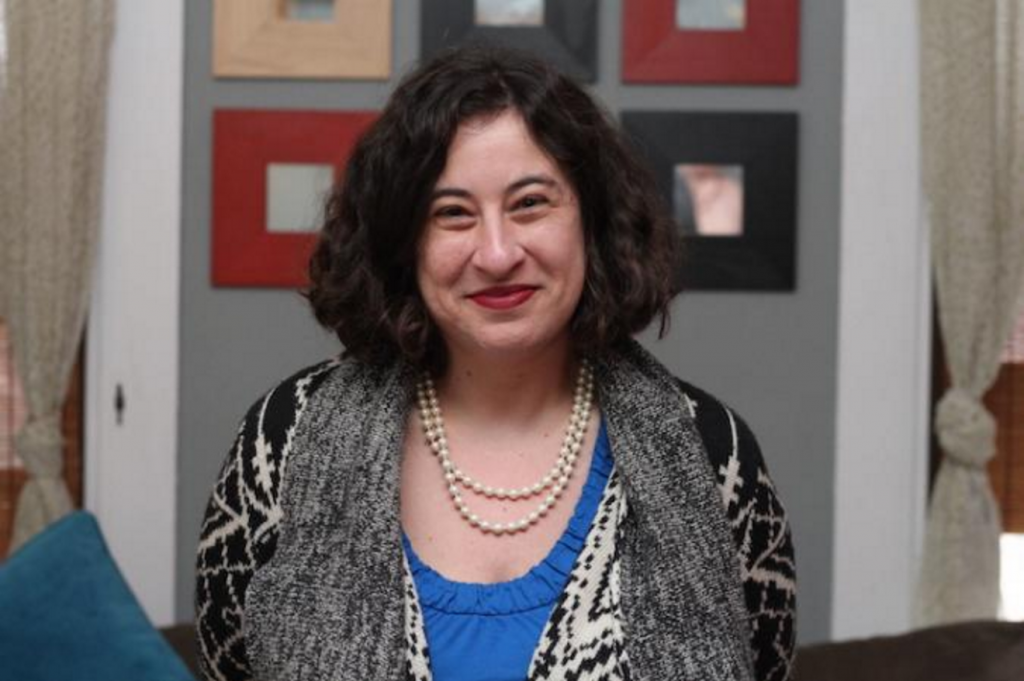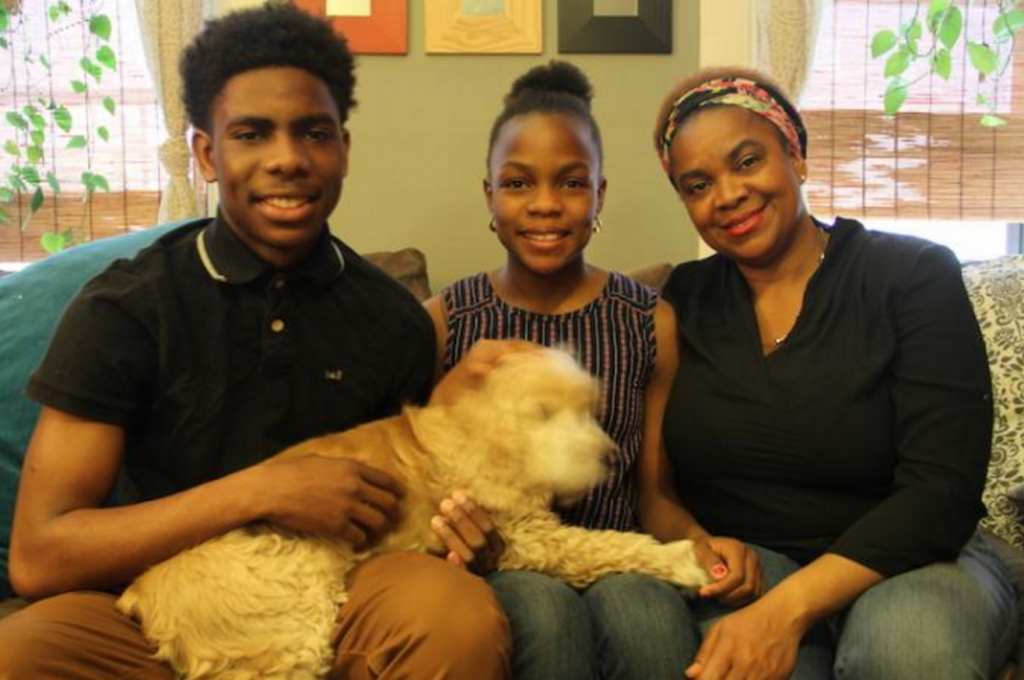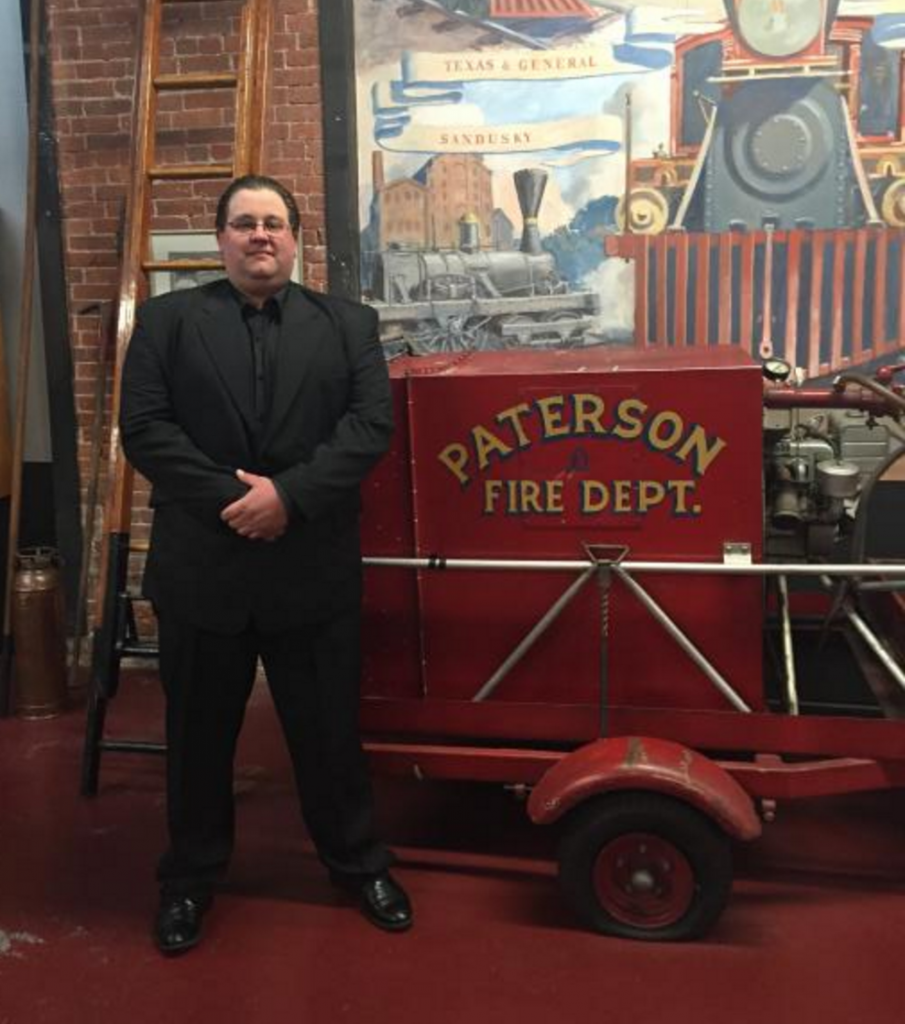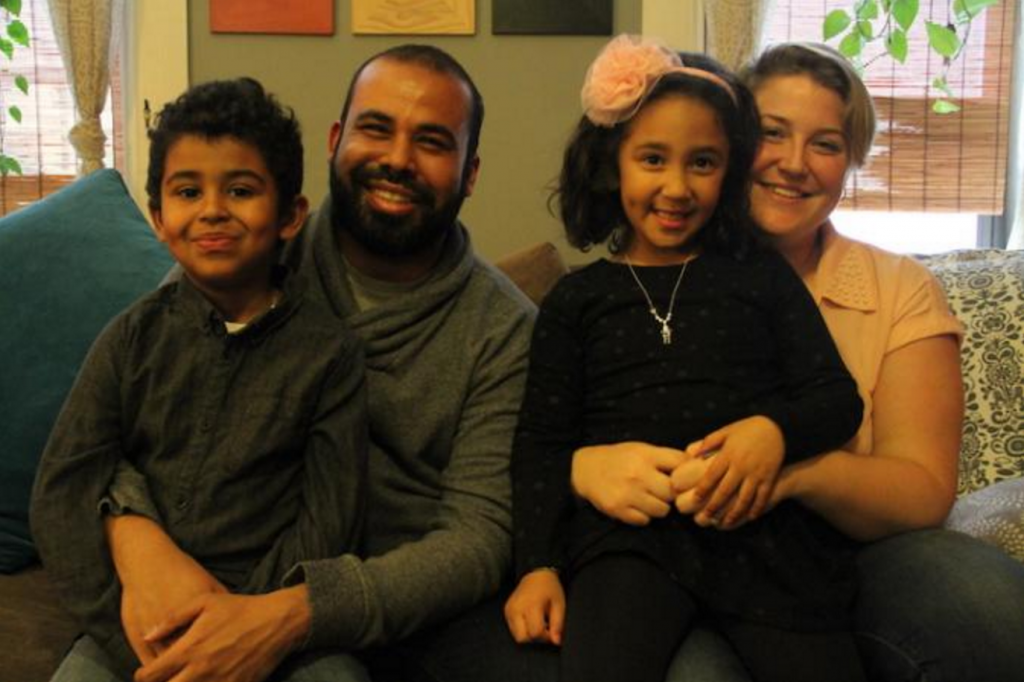Amy Albert grew up in a homogenous, conservative Boston suburb; the neighborhood was predominantly white, predominantly Christian. Her own family was different: they were Jewish, to start, and her mother was a lesbian, her father gay. Albert learned early on what it feels like to exist in the margins. That experience has deeply informed her career in social and racial justice – she represents youth in Brooklyn’s courts and supreme courts – and it’s guiding her today, as she lays the foundation for Jersey City’s Haven Adolescent Community Respite Center, slated to open its doors in 2017. Haven – which will keep young men out of jail by welcoming them into a new kind of community, instead – is a new kind of solution, and it is desperately needed.

[Amy Albert, Parent, Public Defender, Founding Board Member of Haven]
“I had the experience of being marginalized in certain ways,” remembers Albert, “and I bonded pretty closely with a group of folks of color who were in town, and began doing race relations work when I was about 16. I had witnessed particularly my father’s marginalization as a gay man in the 80s and 90s, and I didn’t want that to happen to other people.”
Haven is not, though, seeking out LGBTQ youth its primary demographic; Albert and her fellow founding board members saw that there were already a number of services available to LGBTQ youth in the area. “I think that the group that doesn’t get serviced,” explains Albert, “are young men of color who identify as straight. Instead, we send those kids to prison.”

[Jennifer Allen: Parent, Educator, Founding Board Member of Haven]
Troubling patterns
The 15 years Albert has so far spent representing youth in courtrooms have given her a front row view of some of the troubling patterns and forces pulling youth into the criminal justice system.
“Their parents are frustrated,” she explains, of the cases she sees, “and that could be for any number of reasons. It could be because they’re the first generation of young people born in this country, and there’s a huge cultural difference between them and their parents. It could be because they’re gay or lesbian. It could be because they get pregnant or get someone else pregnant. It could be because they or their parents have mental health issues or drug addiction issues. It could be because the kid was involved in the criminal justice system and incarcerated for a period of time and the relationship between the parents and child deteriorated. Or just the stresses of being in certain environments. So what I would see is that parents just didn’t know what to do anymore, and so they called the police.”
What parents often don’t realize is that once law enforcement is involved, their child will be subject to a protocol that may not be situation-appropriate. What began as family conflict can spiral far out of their control. “The police don’t have a lot of options,” explains Albert. “They can arrest the kid. They can tell the parents to go talk to social services. Or they can call for an ambulance, on the assumption that the kid is having some sort of mental health problem. So a lot of times I would see young people whose parents did not intend for them to be arrested, but that’s what happened.”

[Steve Gernant, Paterson Fire Department, Former Jersey City EMS]
Where are the alternatives?
Convinced that there had to be a better way, Albert started talking with her brother-in-law, Steve Gernant, a fire fighter and former EMT, who was seeing the same patterns from the other side. “When the police decided ok, we’re not going to send the kid to court, we’re going to call the EMT, “ says Albert, “he was in the frustrating situation of seeing kids who really didn’t have mental health issues to the degree that they’d need to be hospitalized, whose parents insisted that that must be what’s going on. Some of them then get medicated inappropriately, and some of them just get let out through the back door, but much more angry at their parents, because they feel that their parents are stigmatizing them.”
Albert and Gernant teamed up with tireless parent advocate and founding board member Jen Allen, and got to work. Soon, the idea for Haven was born: it would be a safe space for young men to cool down, to engage with mentors and build community, and to calmly create a plan of action with – not against – their parents. It wasn’t long before Haven had support from local elected officials like Congressman Donald Payne, legislator Bill O’Dea and Jersey City Mayor Steven Fulop.

[Jamie Powlich, Parent, Youth Advocate, Founding Board Member of Haven]
What will Haven look like?
First, there are a few things Haven will not look like. “It’s not a homeless shelter,” says Albert, “because it has a lot more services and it’s for kids who aren’t necessarily homeless yet. It’s voluntary, so it’s not a prison setting. And it’s not through the court system, so there’s not the level of stigma.”
Haven will be a place for youth to rebuild a sense of community and belonging. Basketball, art classes, cooking classes taught by fire-fighting Gernant himself – you name it. A staff of social workers, as well as youth and parent advocates, will provide services including individual and family therapy. Jersey City University’s graduate program will step in to conduct educational and psychiatric assessments. Haven’s board of directors is currently building strong relationships with local police and EMTs, as well as nearby crisis intervention services, so that the community will know who to direct to the center, and how. The board is also reaching out to potential mentor figures at religious institutions all over diverse Jersey City, as well as from the local business community, and from block associations. It’s all hands on deck.
“The idea is to give everybody in the family a break, provide services, and make a plan” says Albert, “similar to the kids of plans that are put in place for survivors of domestic violence. ‘When things get rough again, how are we going to handle it?’ But in this case, we do it from both ends – from the parent and the young person’s end – and come up with a solution that will hopefully be more durable, and if not, there’s the residence to fall back on.”
What you can do
Want to donate to help Haven fund its early outreach efforts? This summer, Haven is raising a modest $3,815 via their ioby campaign; the money will be directed to research, planning, establishment of non-profit status, and creation of promotional materials and web presence.
Update!
As of October 25, 2016, Amy Albert is at it again! This time, she’s fundraising $6,000 for the Haven Adolescent Community Respite Center to host support groups through cooking and eating together. To donate to this project, visit the Dinner, peer support and conversation with Haven campaign page.
Feeling inspired? Want to take action in YOUR neighborhood? If you have awesome ideas about how to make your town greener, safer, and more fun, let us help! Tell us your awesome idea right here. We’d love to help you get started today.
Pssst…. In other ioby news: Interested in learning CPR? Did you know that if a friend, family member, or stranger goes into cardiac arrest when you’re nearby, the person most likely to save their life could be YOU? In the case of a heart attack, the EMTs are by definition too far away – no matter how good they are at their jobs. They need the help of bystanders like us. Find out what this Clevelander is doing to equip his neighbors with lifesaving skills.